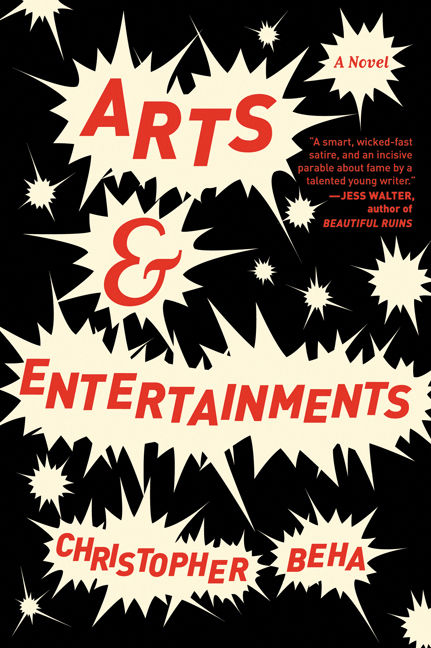Eddie Hartley, a reluctant, disaffected, high school prep drama teacher, failed actor and struggling husband, finds himself mounted with over 10K in credit card debt from yet another failure: an unproductive round of in vitro fertilization.
Eddie, knowing his teaching salary cannot support more treatment, sells a sex tape of he and his ex, who is now a famous actress.
He rationalizes the exploitation — no publicity is bad publicity. The tape could aid his ex’s career. At worst, it will be a nonissue in a matter of minutes.
In exchange for a mere 100K, Eddie’s choice earns him the spotlight he’s vied for a lifetime, center-stage of tabloid gossip.
Susan kicks him out and becomes the beloved star of her own reality show, “Desperately Expecting Susan.” Eddie, now an object of public scorn, gets his own reality show about a fake relationship with a Millenial fame-focused aspiring actress and college freshman, Melissa.
Eddie has the fame and fortune he was previously dreaming of by sharing the screen with Melissa, who has “never breathed air that hadn’t first been filtered by [tabloids].” She commands Eddie at every turn —“don’t break scene” — in her similar quest to remain in the public eye.
Eddie begins to value a quiet, modest family life and tries to get Susan back. Through Susan, who respects the art of the Renaissance “with real belief behind it,” the reader contrasts art backed with true faith versus the spineless whimsy of arts and entertainment that lack truth, beauty, purpose or virtue.
Eddie, who had been attending Mass with Susan, was never sure about his beliefs. He liked the idea believing because, like acting, he wanted to be watched by an omnipotent being — “every action had a purpose and a meaning.” His and society’s struggle with faith is juxtaposed with the manipulated meanings of reality television.
In “Arts & Entertainments,” Christopher Beha highlights a tragic flaw of our time. Beha’s crisp, clear style accrues clean sentences strong enough en masse to uphold the sociological examination of contemporary, American value systems.
There’s no denying that we, the readership, indulge in the sensationalism that is critiqued, but with our Catholic spine intact, we see clearly the problems presented by tabloids, Tinder, tapes selling sex and more.
In this way, Beha bridges the smut and the smarts of this escapade through the deceits of reality TV. Beha’s style is traceable to Hemingway’s concision and power.
Beyond any singular reading, “Arts & Entertainment” is a literary accomplishment about the complexities of love and living a meaningful life. Worthy of your attention, “Arts & Entertainment” calls us to avoid the near occasion of worshiping the false god of celebrity.
Spine Time offers a monthly book review from a literary Catholic worldview.

